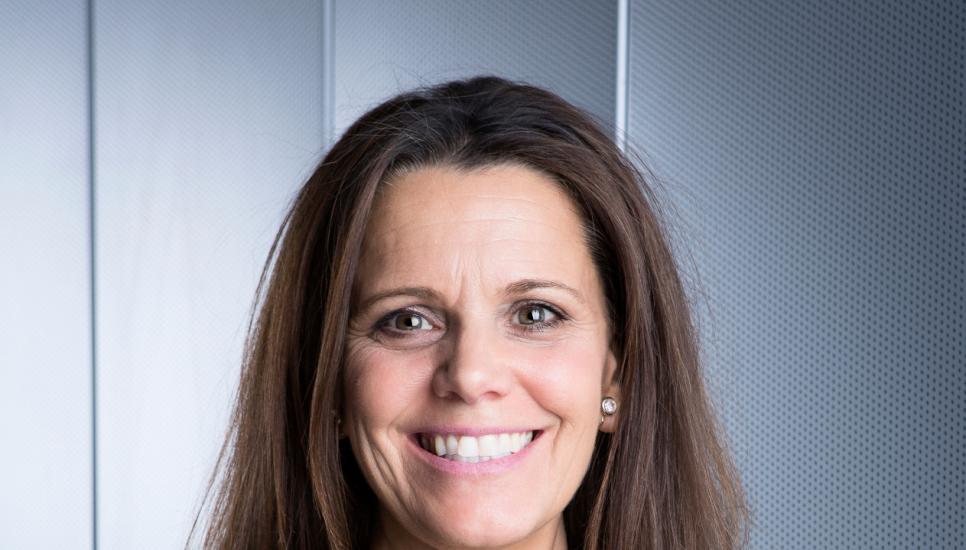Australia's Coopers Brewery family business has fortitude on tap against the coronavirus

Australia’s family-owned Coopers Brewery is demonstrating its resilience against the impacts of the coronavirus pandemic by continuing to manufacture and distribute its products while supporting supply chains and the hospitality sector, and protecting its workforce and philanthropic grants.
Since the Covid-19 outbreak, the sixth-generation family business has grappled with major changes in how it operates, in tandem with difficulties among commercial partners and fluctuating customer demand in an uncertain market.
Coopers took the initiative at the cost of almost AUD $4 million (US $2.6 million) to refund the returned full and intact kegs of its beer from pubs, clubs and restaurant customers unable to trade under the national lockdown. In contrast in March, sales of the brewery’s packaged beers increased by 30%. Sales of the company’s popular home brewing kits shot up 60% with an even bigger boost in online sales. Malt exports have doubled to 35,000 tonnes in 12 months, mainly to food producers and brewers in South Korea, Thailand and Singapore with smaller quantities sold to brewers and distillers across northern and South-East Asia.
The 157-year-old family business has virtually brought the pub to patrons in their homes under lockdown. On 24 April, it launched a branded interactive entertainment show and live streamed via Facebook. Coopers Presents Loud, Live & Local features bantering hosts, comedians, musicians and chefs as well as prizes and giveaways for an hour on Friday and Saturday nights to registered viewers over the age of 18.
At the Coopers headquarters and new AUD $49 million (US $31.7 million) malting plant at Regency Park, near Adelaide, the family followed government advice and managed the practicalities of new social distancing while maintaining its rigid hygiene policies in all areas of production. Internal communications from family principals have incorporated video addresses to relay clear information to staff about the company’s crisis response with a unifying team spirit as staff are divided between facilities and homes.
Melanie Cooper (pictured), finance director at Coopers Brewery and chairwoman of the Coopers Brewery Foundation, tells CampdenFB about the hard decisions the family business has made and the new solutions they have deployed to get through the unprecedented disruption.
What impacts have there been on the Coopers Brewery family business to date because of the coronavirus pandemic, in terms of production, investments, growth and staff?
We have had to separate and segregate teams, especially production teams. Sales and marketing teams are largely working from home and on-premise sales teams are working to bring back and fully refund kegs. Off-premise teams continue to work with bottle shops for sales and with the national accounts and wholesalers like Coles and Woolworths. In Australia we are unable to sell liquor in supermarkets, although Coles and Woolworths will often have a bottle shop attached to a supermarket. The hotels are allowed to continue trading through their bottle shops and sell food as well.
Staff have been amazingly resilient and largely upbeat. Most are incredibly grateful to have full employment at a time when so many partners’ colleagues in the industry and others generally are being stood down losing their jobs or going to part-time.
Investments are held in our foundation and that has been affected severely.
We had a sudden surge in panic buying and our sales in March more than offset the credits that will have to be given for returned kegs from on-premise hotels. We had to ramp up production of stock for the increased sales as well as stock-build in the event that the brewery might have to close, although in Australia this is looking less likely. The pandemic has not hit us as hard as it has in Europe and the US due to early intervention, closing international and state borders and the space we have here.
Demand has slowed more recently as people’s stockpiling has had an effect on the bottle shops. However, a lot of stock that was delivered to warehouses was not able to be delivered to shop floors as the demand for grocery outweighed that for alcohol and trucks were being used to fill grocery shelves ahead of bottle shops.
We have followed to the letter government guidelines with constant cleaning of equipment, separate staff rooms for various departments and by introducing working-from-home policies, ensuring people are safe at home with their workspaces and are mentally coping with the isolation with daily check-ups.
 How are you managing these impacts?
How are you managing these impacts?
We have honoured our commitment to give full credits to hotels for kegs returned and not all breweries are doing this. This will have an impact on our cash flow now that sales are slowing, but it is still too early what that full impact will be going forward. We are starting to model the next 12 months based on a September easing of restrictions, which our government has repeatedly told us to expect.
The new normal is now our new routine and this has been largely embraced with the slower pace, the time at home instead of being at functions and travelling, and the slowing of outside meetings. While the first four weeks we were running on adrenalin, making our worksite safe clean and virtually in ‘island mode’, and ensuring our employees were safe, we are now enjoying a time of regrouping and calm. Only critical visitors are allowed on site and they are few.
 What has been the toughest decision the family has had to make and why?
What has been the toughest decision the family has had to make and why?
The hardest decision to make actually was allowing then facilitating people working from home which is new for us. We have traditionally relied on people being present and it has been much easier to communicate with each other on site, but it is more difficult doing that remotely. Having said that, it has worked extremely well under the circumstances and Zoom has become the new way of having meetings. We are constantly in touch with those working from home and trust they are being diligent and coping with their new environment. Mental health is a concern for us with those working from home and we are closely monitoring it. We have a working from home check list that needs to be completed to ensure they are safe and ergonomically set up correctly.
Any successful methods of mitigation or advice you would recommend to your peers in family businesses who are dealing with the pandemic?
Keep contact with all employees to make sure they are okay. We have an anonymous online survey platform and we send a question every two weeks to employees. Three weeks ago we asked if everyone was okay and coping with the new conditions. All but one responded positively, which although disturbing to have one, was quite a relief. Without our employees we are nothing so they need to be nurtured. Fortunately as we have included in our Guiding Principles that we treat our suppliers as importantly as our customers, in these times of shortages our suppliers have been very supportive and loyal and returned that respect—which has been extremely helpful.
My thoughts go to those many family businesses who have been severely affected by this pandemic which is outside of their control and hope they have the ability to recover from the damage caused. I also hope that they have had minimal effects and losses through the illness that is causing so much pain and suffering around the world.
Are you seeing extra demand from the community on the philanthropic work of the Coopers Brewery Foundation? If so, how are you strategising the foundation’s sustainable response?
The Coopers Brewery Foundation has suffered quite significantly from the effects of the pandemic. We have an investment portfolio which generated income from deposits and investments and this has been severely affected. Our fundraising efforts, such as tours or the Brewery donations from shareholders customers suppliers and supporters, has slowed significantly and our major fundraising event of the year, our annual golf day was cancelled due to the restrictions in place. This was to have funded our Sustainable Giving Grants of AUD $150,000 (US$ 97,749) a year.
We are hopeful the government will soon announce a relief package for the philanthropic sector, including tax incentives in order that donations will continue. Our applications for funding remain in place however, this will have to be scaled back eventually unless income increases soon. Once again, I feel for the many charitable organisations that are helping those in need who have been so severely affected by these conditions. It is our aim to help them as much as possible when things slowly unwind and restrictions are lifted—although when and what that looks like is anyone’s guess.






.jpg)





